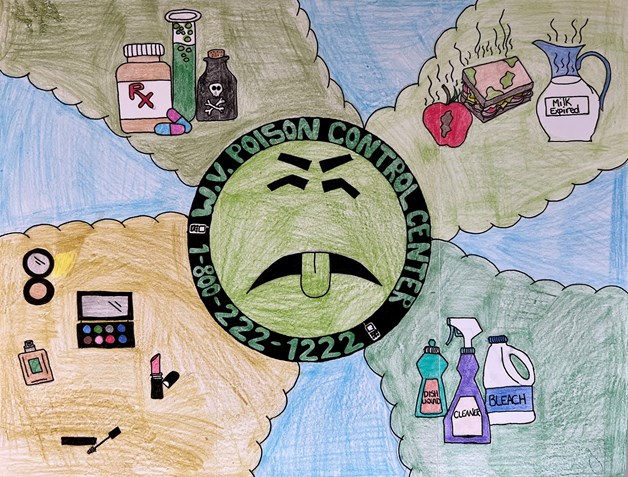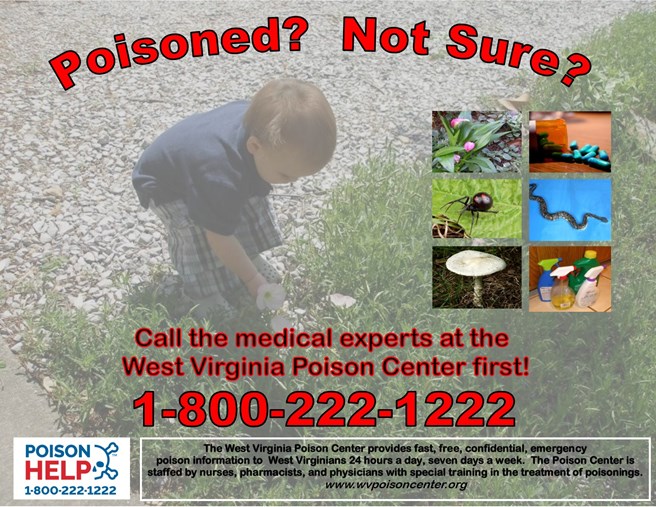West Virginia Poison Center Middle School Poster Contest Winner:
Nevaeh Hamner, Buckhannon Upshur Middle School

For more poison contest winners, view our WV Poison Center Poster Contest.

Nevaeh Hamner, Buckhannon Upshur Middle School

For more poison contest winners, view our WV Poison Center Poster Contest.
